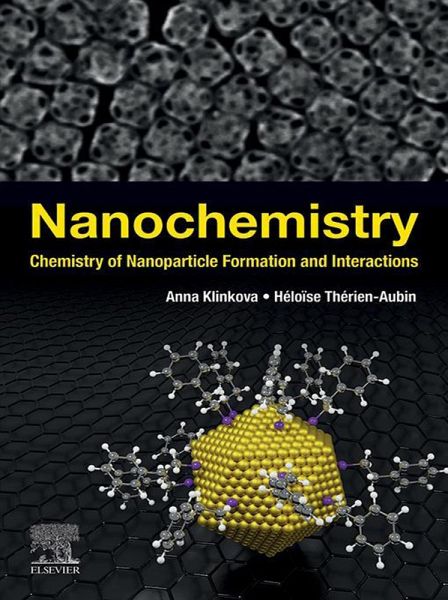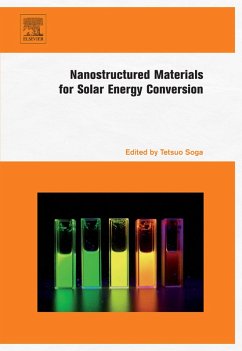
Nanochemistry (eBook, ePUB)
Chemistry of Nanoparticle Formation and Interactions
Versandkostenfrei!
Sofort per Download lieferbar
113,95 €
inkl. MwSt.

PAYBACK Punkte
57 °P sammeln!
Nanochemistry: Chemistry of Nanoparticle Formation and Interactions provides an overview of the chemistry aspects of nanoparticle science, including nanoparticle synthesis, chemical properties, stability, applications and self-assembly behavior. The critical concepts discussed in this book represent the necessary toolbox for enabling the rational design of nanoparticle-based materials for target applications. After an introduction to standard analytical techniques used for nanoparticle characterization, four separate chapters cover inorganic, organic, polymer nanoparticles, and carbon nanostru...
Nanochemistry: Chemistry of Nanoparticle Formation and Interactions provides an overview of the chemistry aspects of nanoparticle science, including nanoparticle synthesis, chemical properties, stability, applications and self-assembly behavior. The critical concepts discussed in this book represent the necessary toolbox for enabling the rational design of nanoparticle-based materials for target applications. After an introduction to standard analytical techniques used for nanoparticle characterization, four separate chapters cover inorganic, organic, polymer nanoparticles, and carbon nanostructures to highlight the synthetic protocols, structural intricacies, and chemical properties specific to each of these material classes. Finally, physicochemical phenomena governing self-assembly behavior of nanoparticles are also discussed in detail separately. This book is intended for senior undergraduate, graduate and postgraduate students and research scientists in nanoscience and nanotechnology, material science, chemistry, physics, biomedical sciences and relevant engineering fields that want to develop a deeper understanding of the governing chemical principles on the nanoscale. - Provides an up-to-date text reflecting the latest changes in the field, acting as a fully restructured successor text to Nanochemistry, 2nd Edition (Elsevier, 2013) by Klabunde and Sergeev - Leads the reader through the fundamental concepts and illustrative examples of inorganic, organic, and polymer nanoparticle formation, discussing, in detail, the aspects of synthetic geometry control, surface chemistry, and nanoparticle stability - Provides in-depth coverage of nanoparticle self-assembly behavior, including the self-assembly driving forces and approaches to control this process through nanoparticle design and environmental cues
Dieser Download kann aus rechtlichen Gründen nur mit Rechnungsadresse in A, B, BG, CY, CZ, D, DK, EW, E, FIN, F, GR, HR, H, IRL, I, LT, L, LR, M, NL, PL, P, R, S, SLO, SK ausgeliefert werden.













